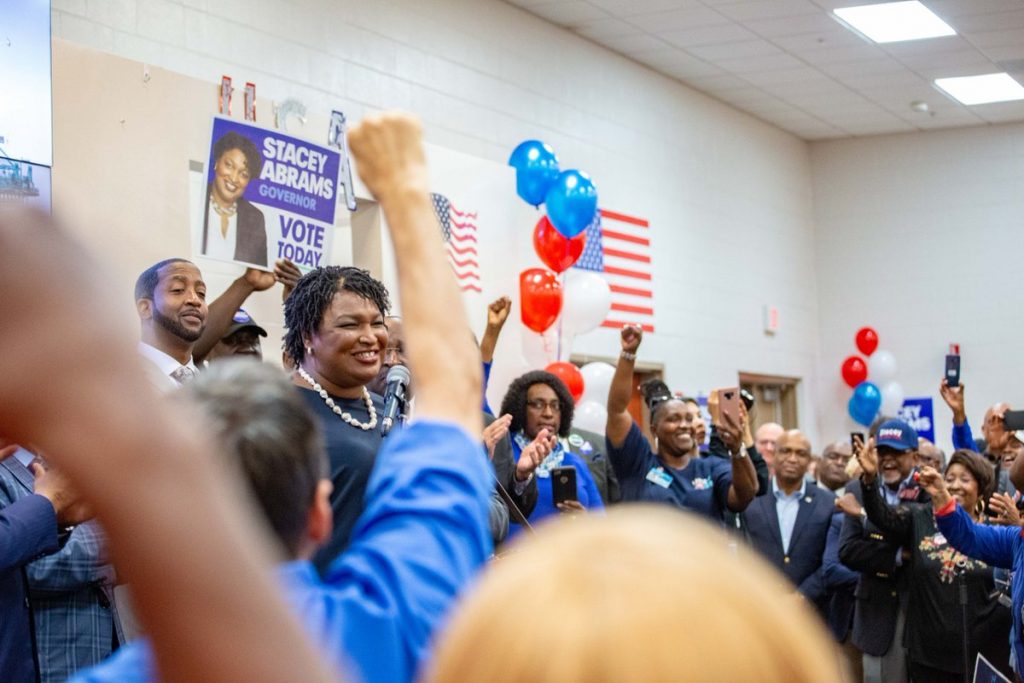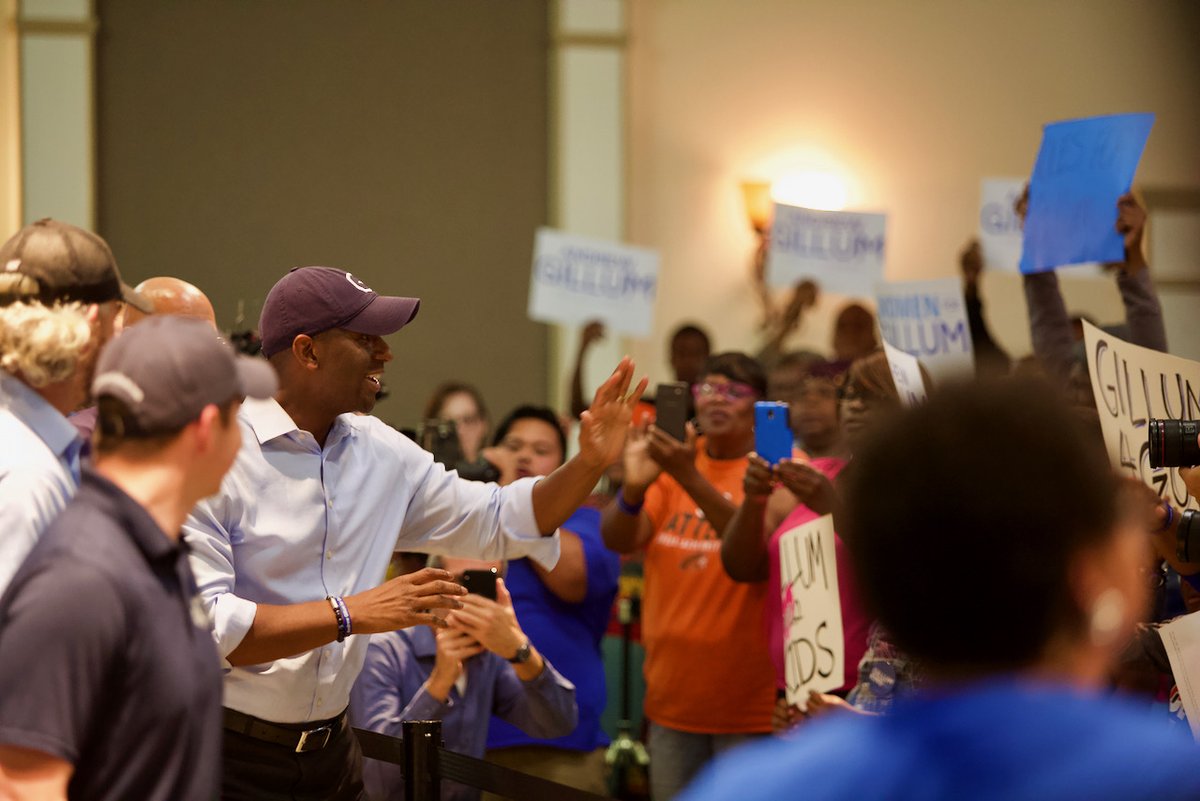The US midterm elections being held today November 6, mark a key moment in the Donald Trump presidency as well as the political and social situation in the United States. The elections are being held for 435 House of Representatives seats, 35 Senate seats, 39 Governorships and 87 State legislatures.
Since the election of Trump as president in 2016, young voters across the US have become not only politically active but also polarized. The Trump administration has introduced various controversial measures, including the proposal to build a multi-billion dollar border wall (strengthening the one already in place), discriminatory migration policies against Muslim-majority countries, removing several policies that protected migrants from Latin American countries and a slew of other attacks on the most marginalized communities in the country.
The US has also slowly withdrawn from multilateral diplomatic platforms while taking aggressive stands against countries like China, Iran, Cuba and Venezuela, and North Korea, leading to a rise in tension and uncertainty across the world.
There has also been a steady and unprecedented rise of the extreme right from the shadows of the conservatism of the Republican Party. Fascist and neo-Nazi sympathizers have become significantly more vocal. There have been several white supremacist rallies that have led to riots and vandalism. Much of this is inspired by the president’s own demagoguery and openly bigoted public statements.
On the other hand, democratic socialism has come to gain widespread popularity, attracting scores of progressive voters, many of whom were inspired by the presidential candidacy of Bernie Sanders. Over the past two years, the hitherto lesser-known Democratic Socialists of America saw a massive rise in its membership, from a few thousands to upwards of 50,000. The DSA has also become platform for those with progressive political standpoints who could not find space within the Democratic Party. These include advocates for reproductive rights, LGBTQ rights, prison reforms/abolition, reform of the criminal justice system, reform of the nation’s immigration laws, scaling down of the American military-industrial complex and a single-payer universal public healthcare, among many others. These developments will be in play as the United States heads into elections today.
The period has also seen massive mobilizations by feminist movements, trade unions and those fighting for increasing minimum wages, as well as nationwide campaigns such as the Poor Peoples Campaign.
Opinion polls have predicted a possible blue wave, with the Democratic Party likely to regain a majority in the House of the Representatives. This party has also seen significant upsets in candidate nominations, with many veterans of the party, being unseated. Meanwhile, the Republican Party has more or less stayed with their established candidates.
Andrew Gillum, the 39-year-old Black mayor of Tallahassee, is the Democratic Party nominee for the governor of Florida. He is up against Republican Ron DeSantis to succeed the outgoing Republican Governor Rick Scott. Gillum’s victory in the Democratic primary over established party leaders, like former congresswoman Gwen Graham and former mayor of Miami Beach Philip Levine, was one of the major upsets this midterm season.
The Republicans have been in majority in the state House since 1995 and the State Senate since 1997. Since the election of Jeb Bush in 1999 as governor, the Republicans have had control of the executive and legislature. On the 6th, both the House and the position of the Governor will be up for election. Most opinion polls are consistently predicting a victory for Gillum. It would be more significant if Gillum’s popularity has an impact House election, marking a major shift in the State.
Gillum’s emergence and positions has also raised hopes of a progressive resurgence in the State. Gillum has thus become one of the most prominent representatives of a left-leaning and progressive wave that is sweeping the Democratic Party, along the lines of the Sanders candidacy of 2016. It must be noted that Gillum has never himself assumed a very strong ideological identity, unlike say Sanders or the way New York congressional candidate Alexandria Ocasio-Cortez have. This can be attributed to the political landscape of Florida itself.
With the highest proportion of elderly population in the country, and with among largest number of Black and Hispanic populations in the country, the state has always been identified as a key “swing state.” But for the past two decades or so, conservatism of various shades has dominated electoral politics, especially on matters of international relations. More often than not, candidates for the post of the president have had to soften or change their stand together on issues like Palestine-Israel conflict, climate change or regarding sanctions on Cuba, because of the very polarizing opinions on such matters within the State. Even in matters of domestic politics like that of healthcare and taxes, Florida has often elected to power those who have a more conservative stand on these issues.
Gillum has been an advocate for policy measures to mitigate climate change, for a single-payer healthcare, for the abolition of the “stand your ground” legislation, for gun control, for increase in corporate taxes, for restoring the voting rights of ex-offenders (except for in severe crimes), and for the abolition of the U.S. Immigration and Customs Enforcement (that deals with immigration law and deportations). While serving as mayor, he advocated for increasing investments on education and has supported the Ban the Box campaign, which aimed at doing away with the section about previous charges on job applications. Perhaps it is precisely his popularity and him surging ahead of his opponent shows how things in Florida are changing.
In Maryland, Benjamin Todd Jealous, or Ben Jealous, the former President and CEO of the National Association for the Advancement of the Colored People, is the Democratic nominee for the upcoming Maryland gubernatorial race. Jealous is known for his work on prison reforms while working in the Amnesty International and working for environmental concerns and voting rights during his tenure leading the NAACP. Unlike Florida, Maryland is a true blue state. For decades now, both the houses of the Maryland legislature have had a Democratic majority, while only two Republicans could become Governors since 1969 including the incumbent Larry Hogan. The previous Republican Governor Bob Ehrlich could not get secure a second term in office, but if the opinion polls are anything to go by Hogan would likely hold on to his office for a second term, becoming the second Republican to do so since 1954. Jealous is obviously at a disadvantage, but his nomination resonates with the direction that the state’s democratic votes intend to take.
Jealous’ platform is quite similar to what the Vermont senator Bernie Sanders had when he contested for the Democratic Party nomination, unsurprising as Jealous endorsed his candidature. Much of his work has revolved around a consistent advocacy for reforms of the criminal justice system and expanding voting rights and political participation of citizens. He has advocated for the abolition of the death penalty, has been crucial in the battle against the life sentences without parole, and his tenure in the NAACP was key in getting the first scheduled prison closure in history. While Maryland’s political scene has always been quite liberal, the more national and not so much state-level profile of his career could work against him in his contest against Hogan, who has a strong state-wide popularity.

Then there are candidates like Stacey Abrams, the African-American Democratic candidate for Governor of Georgia, who is anti-death penalty and an advocate for the expansion of public-funded healthcare. She is the first African-American candidate of a major party for a gubernatorial race in the state of Georgia. Abrams is in a very close and tight battle against Republican Brian Kemp, if elected she can be the first Black governor of the state. In the same state, we have Lucy McBath, another African-American woman who won the Democratic nomination to run for the U. S. House of Representatives from Georgia’s 6th Congressional District. Unlike the other candidates mentioned, McBath does not have a long history in politics or activism. She came to national attention when she began advocating for gun control laws, after her son was shot dead in what is widely considered a hate crime. Earlier opinion polls showed her trailing behind Republican incumbent Karen Handel, but her lead against Handel has gone up considerably hovering at 6%. Her election could inspire average Americans to involve themselves much more deeply in the politics of their nation, not merely as voters but also as decision-makers.
In the elections in 2017, Lee Carter emerged as the star Democratic candidate, whose victory in the Virginia House of Delegates made ripples across the party. This election season, the star of the show is set to be 28 year old Alexandria Ocasio-Cortez. She won the Democratic nomination for the House from New York’s 14th Congressional district, having contested an unconventional primary against the incumbent Joseph Crowley. Both the Carter and Ocasio-Cortez were inspired by Sanders, and both run on a platform created by the resurgent Democratic Socialists of America. With Ocasio-Cortez’s nomination, rumors about a gradual penetration of the DSA in the Democratic Party in a bid to unseat career politicians who have sided with neoliberalism at the drop of a hat is vindicated to an extent. Progressive and more left than liberal candidates are making the news and gaining prominence in this midterm, and Democratic politicians are pushed further to the left and abandon their generally centrist positions. A blue wave might be around the corner, but it is not the same blue that Americans are used to.





